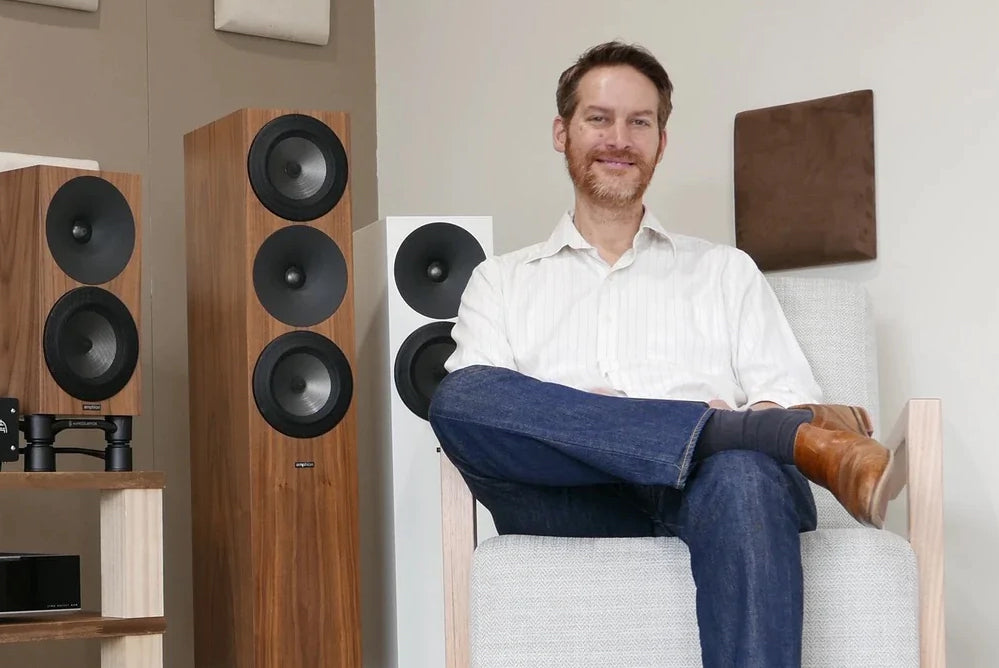

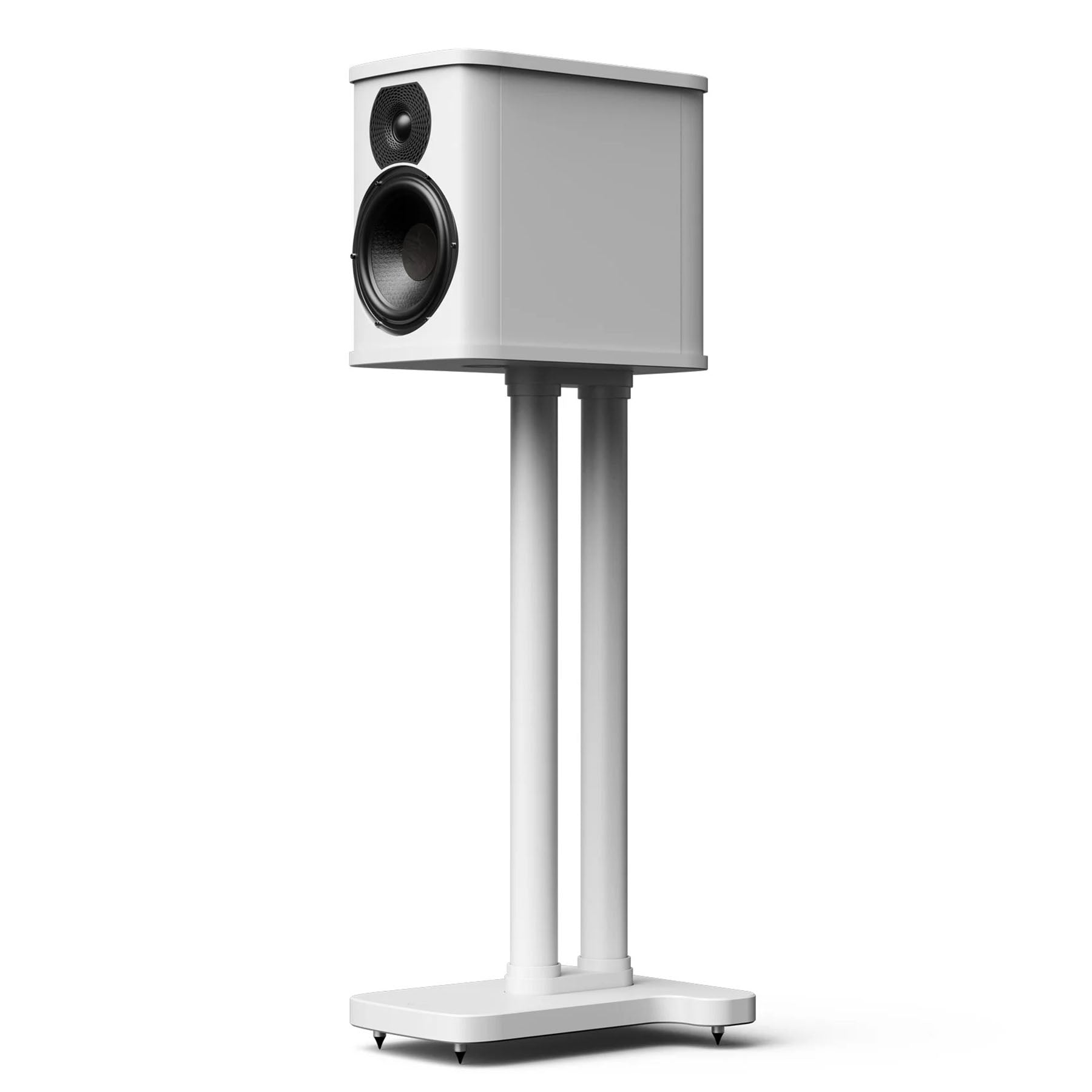
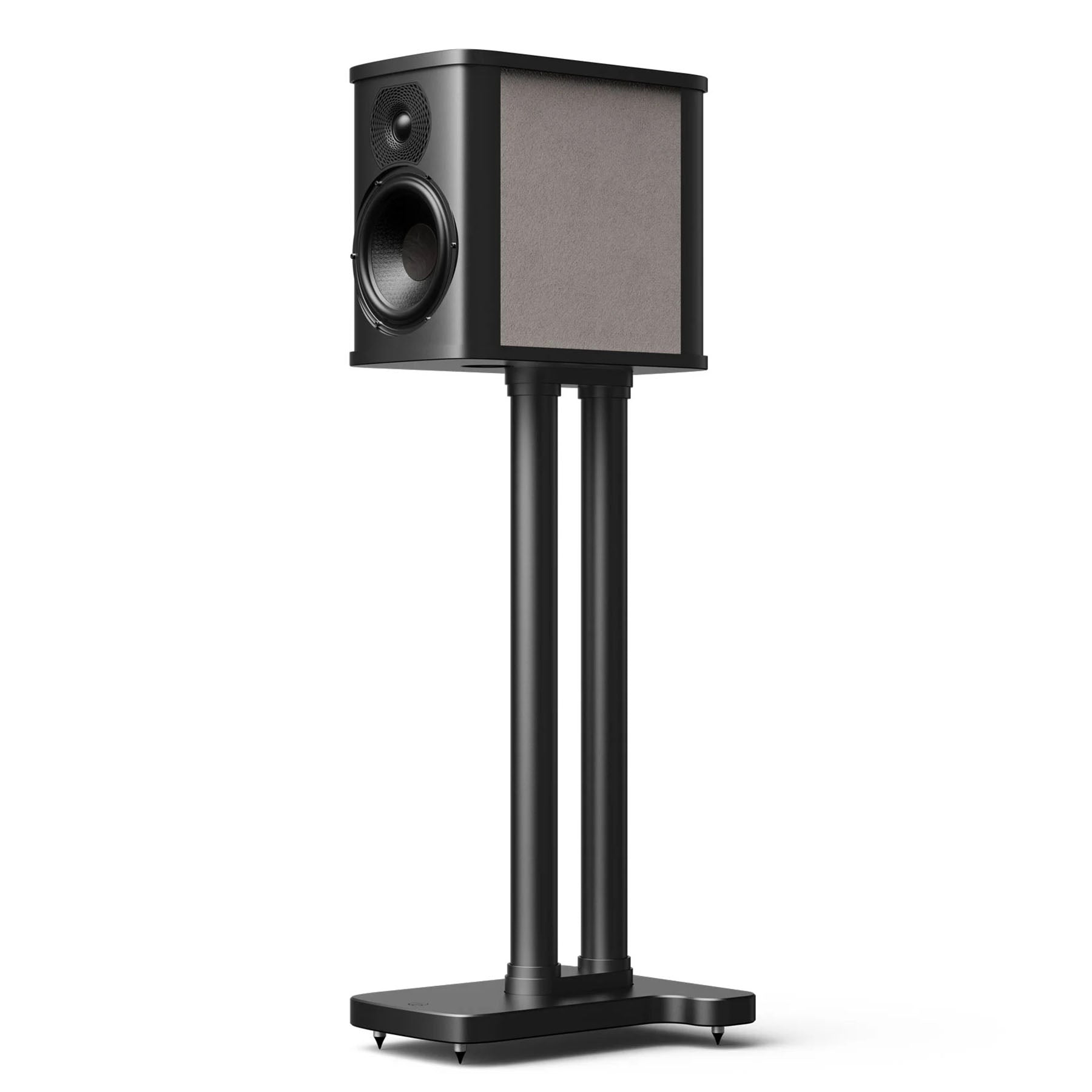
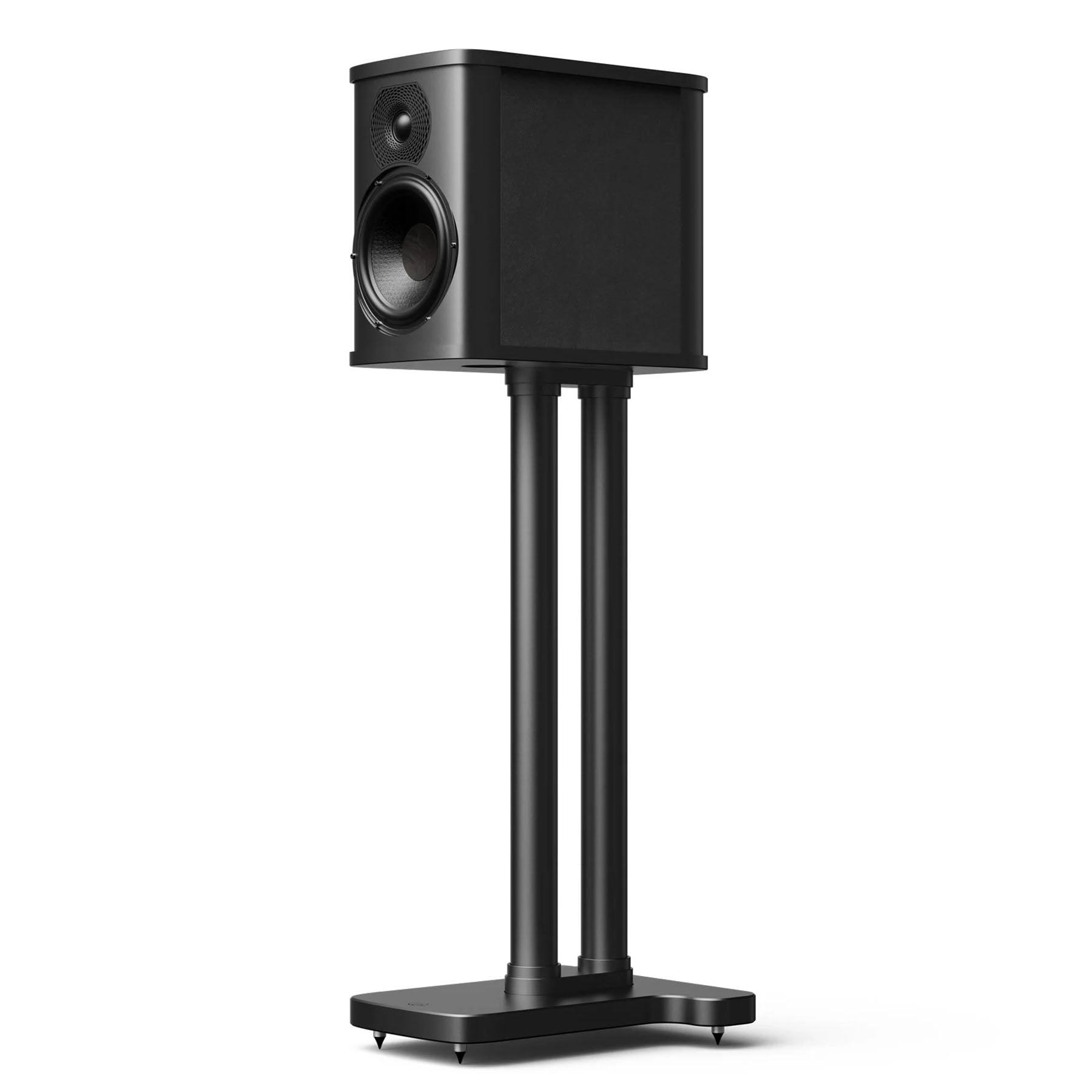
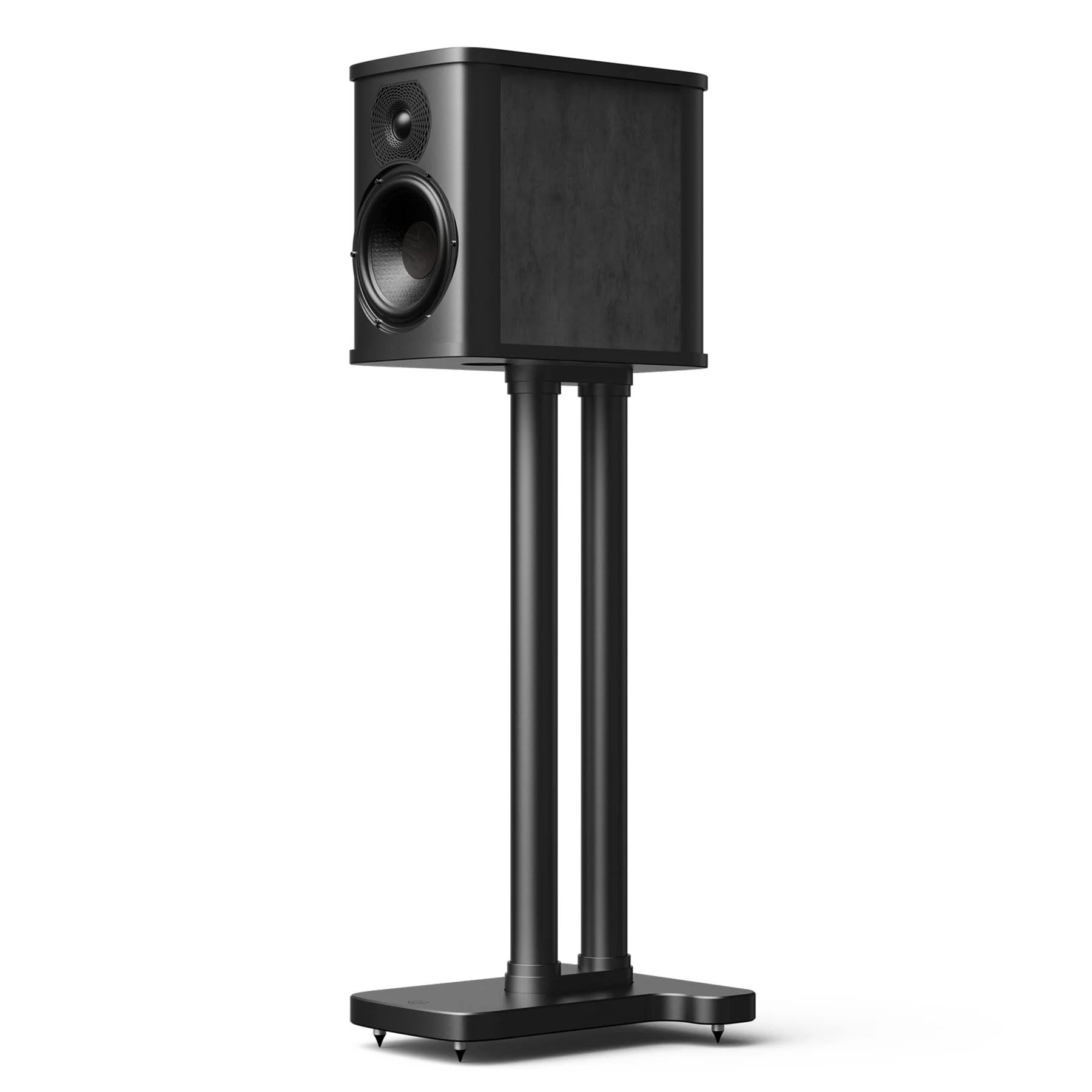
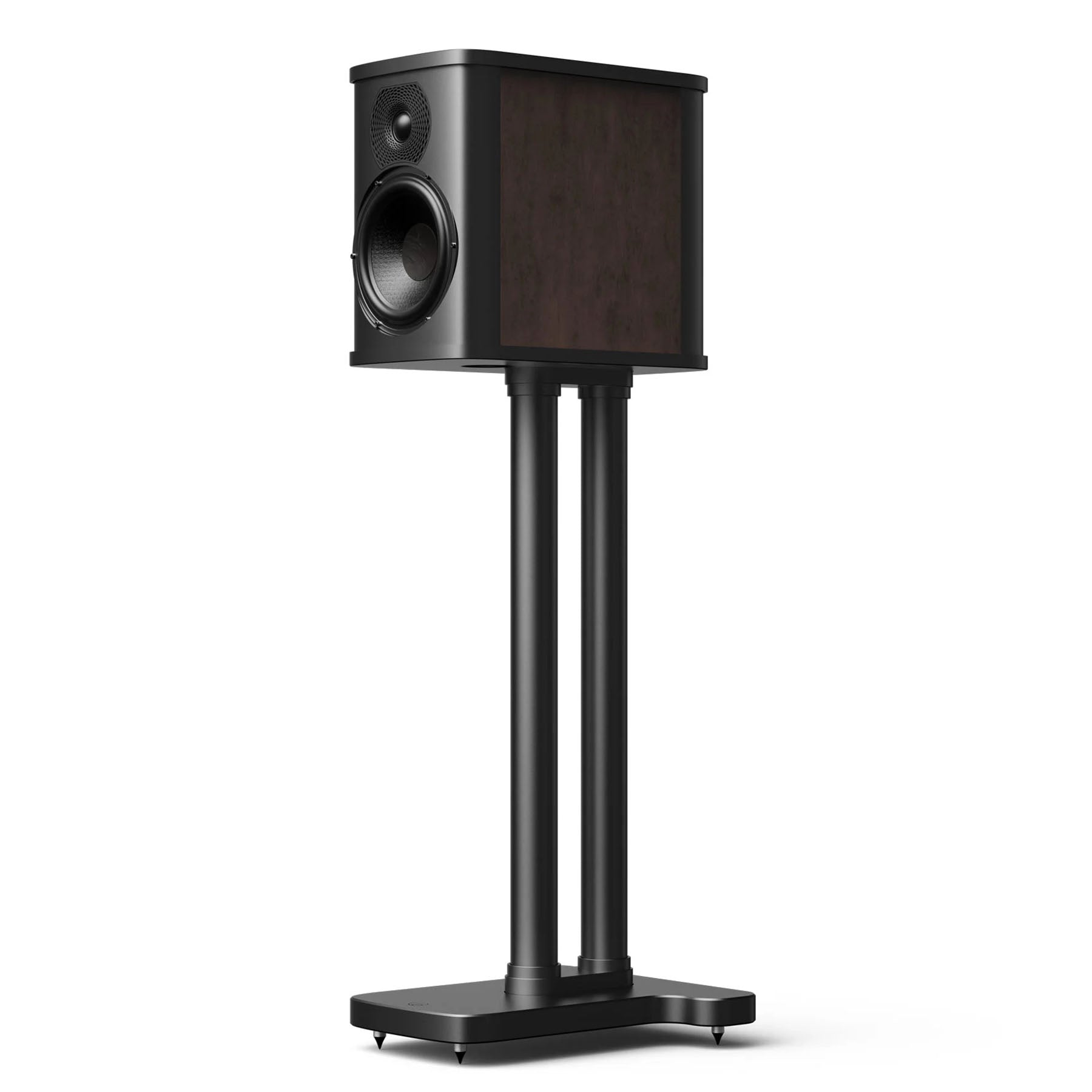
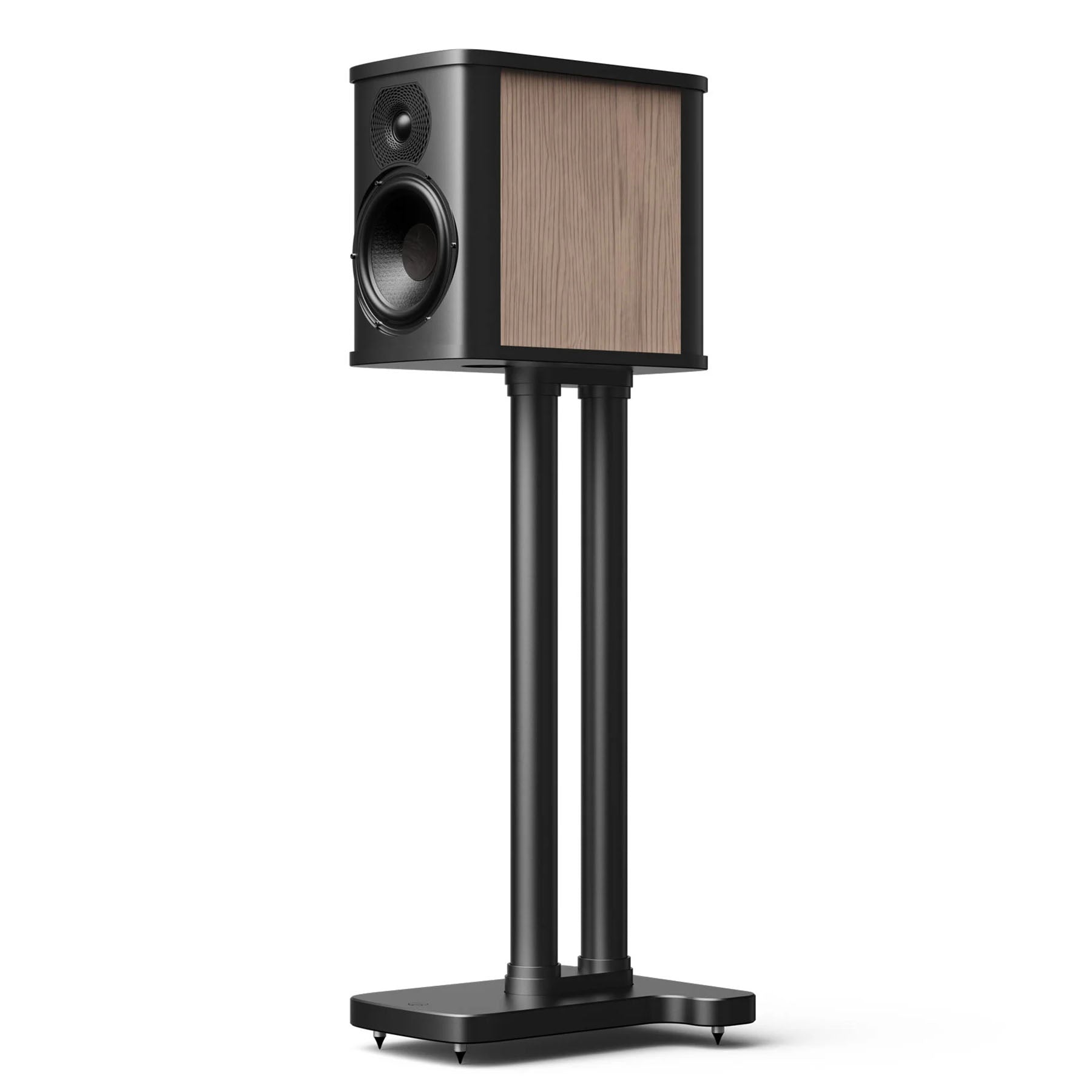
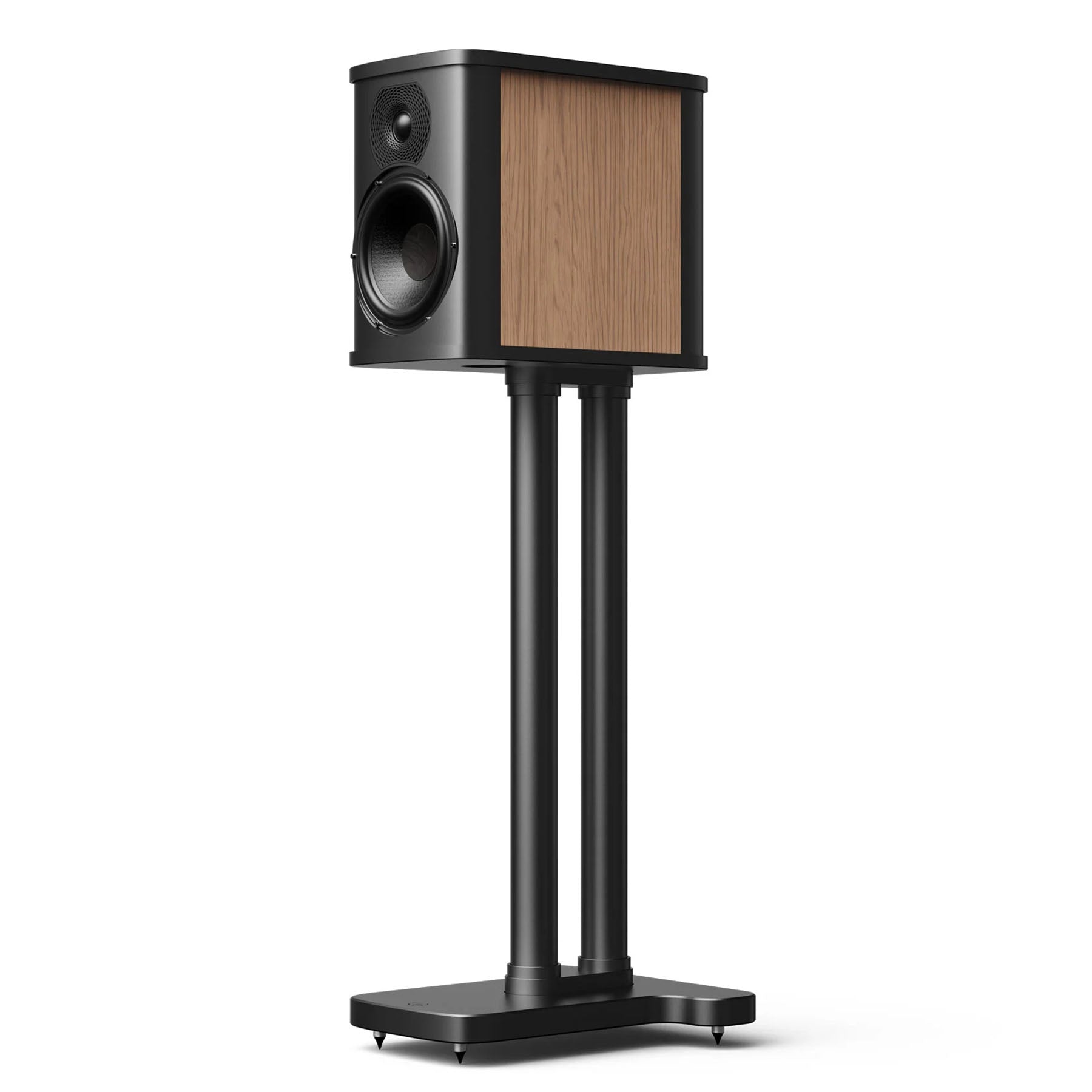
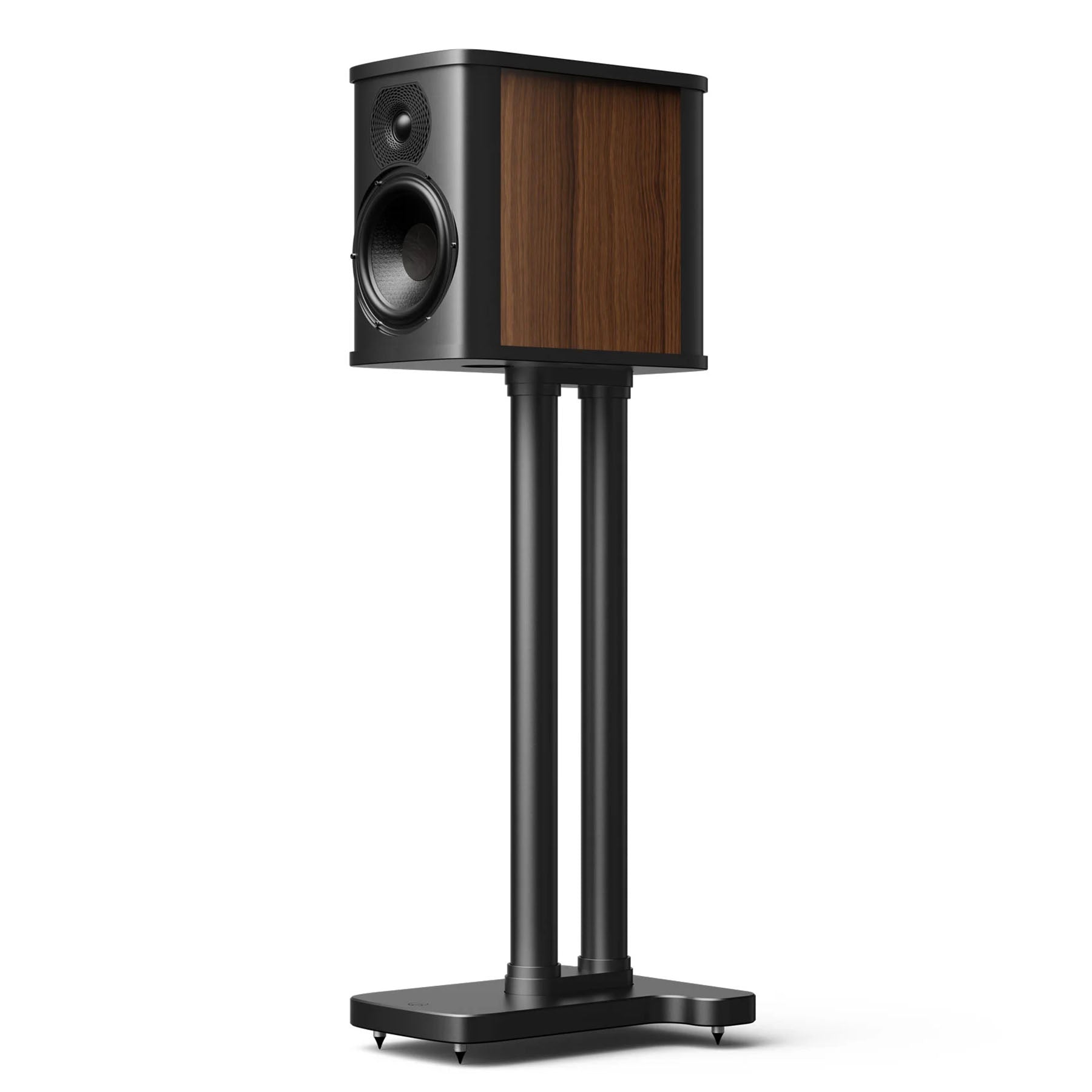
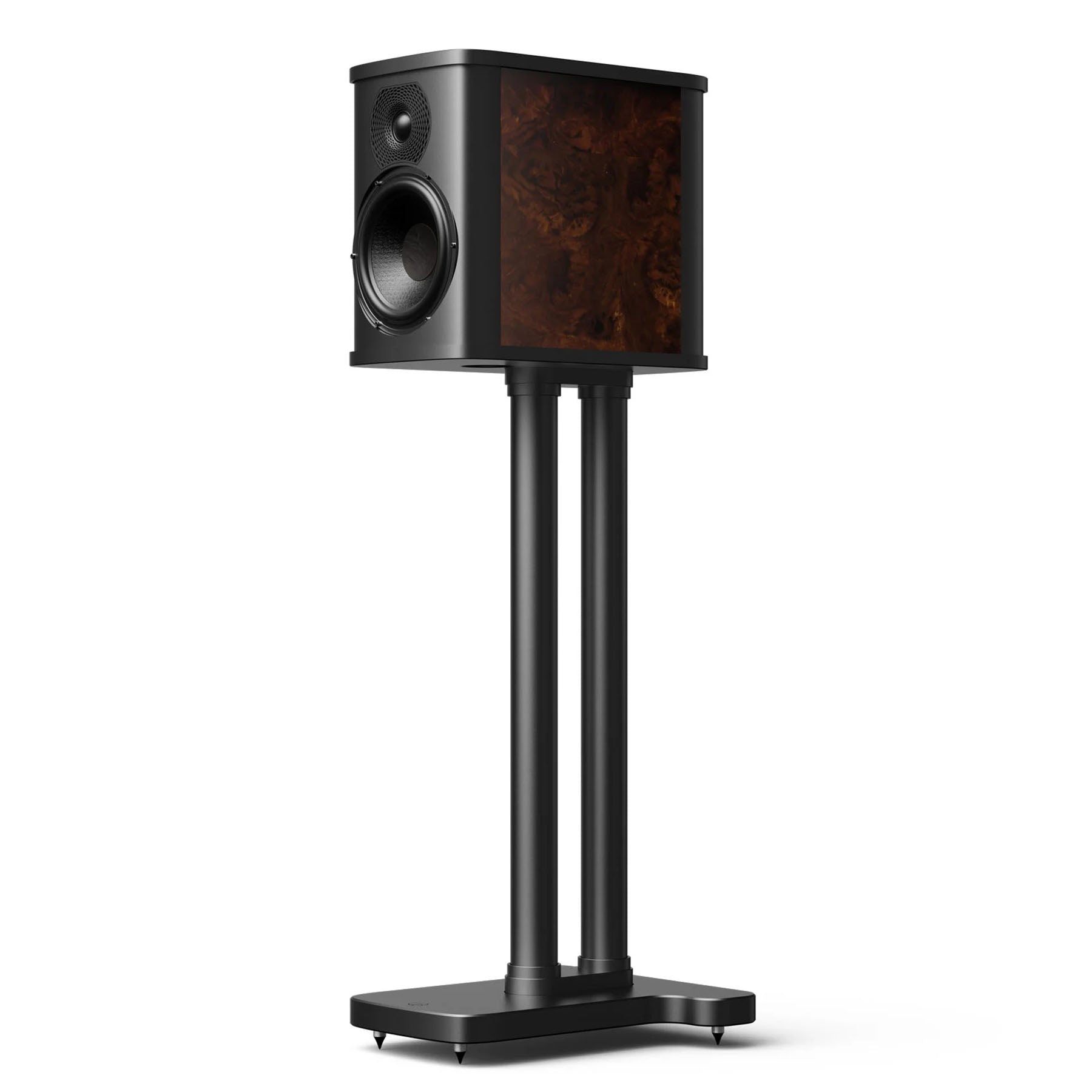
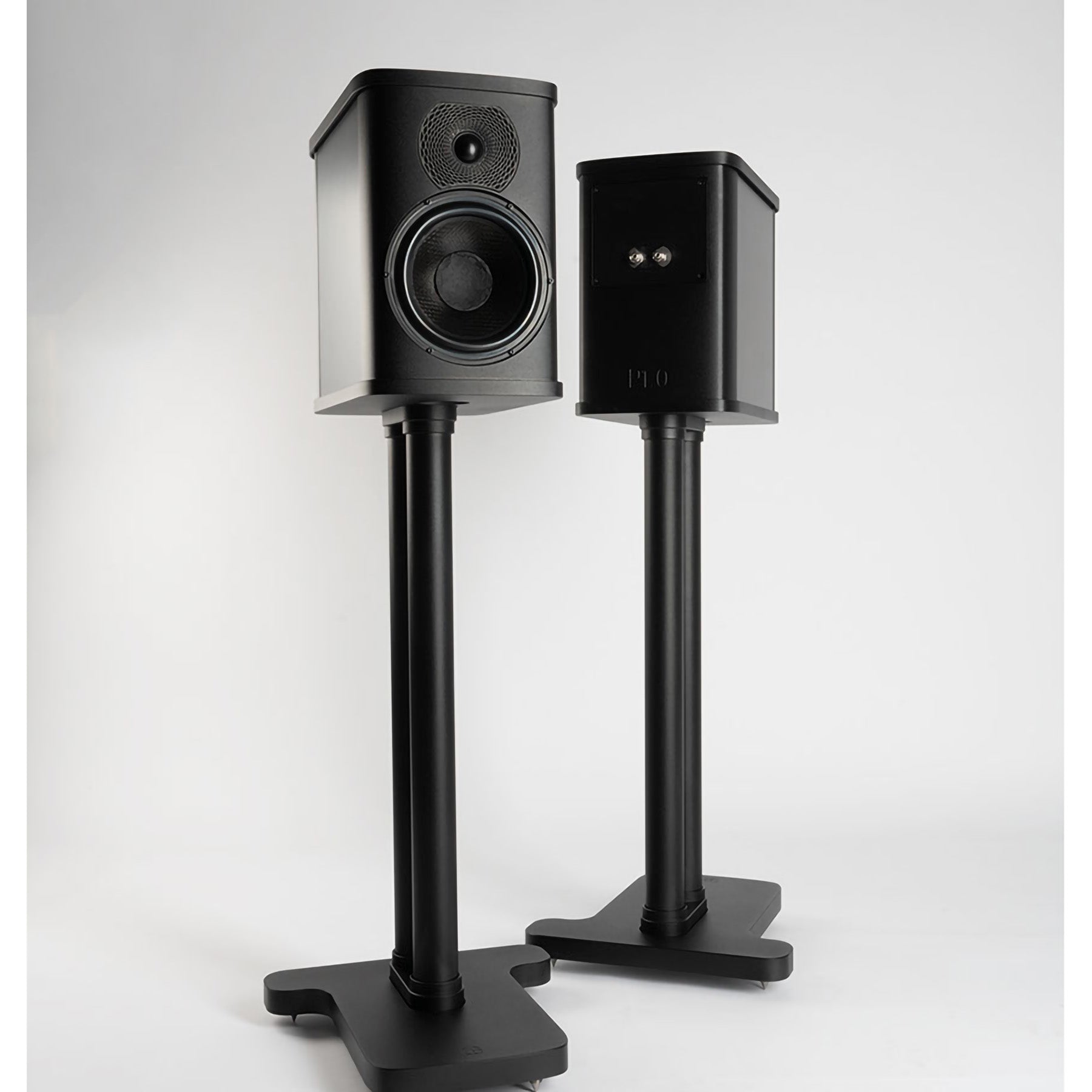
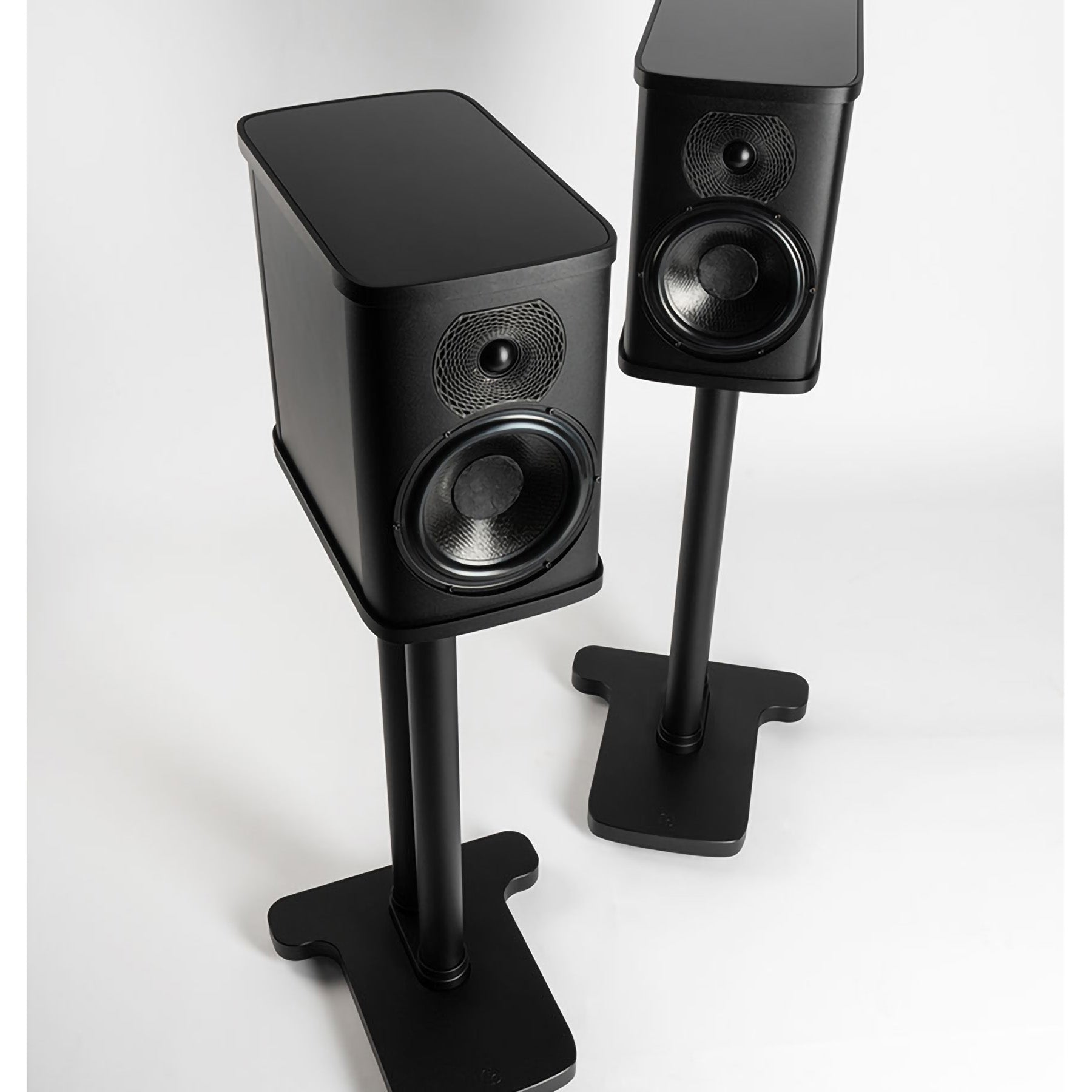

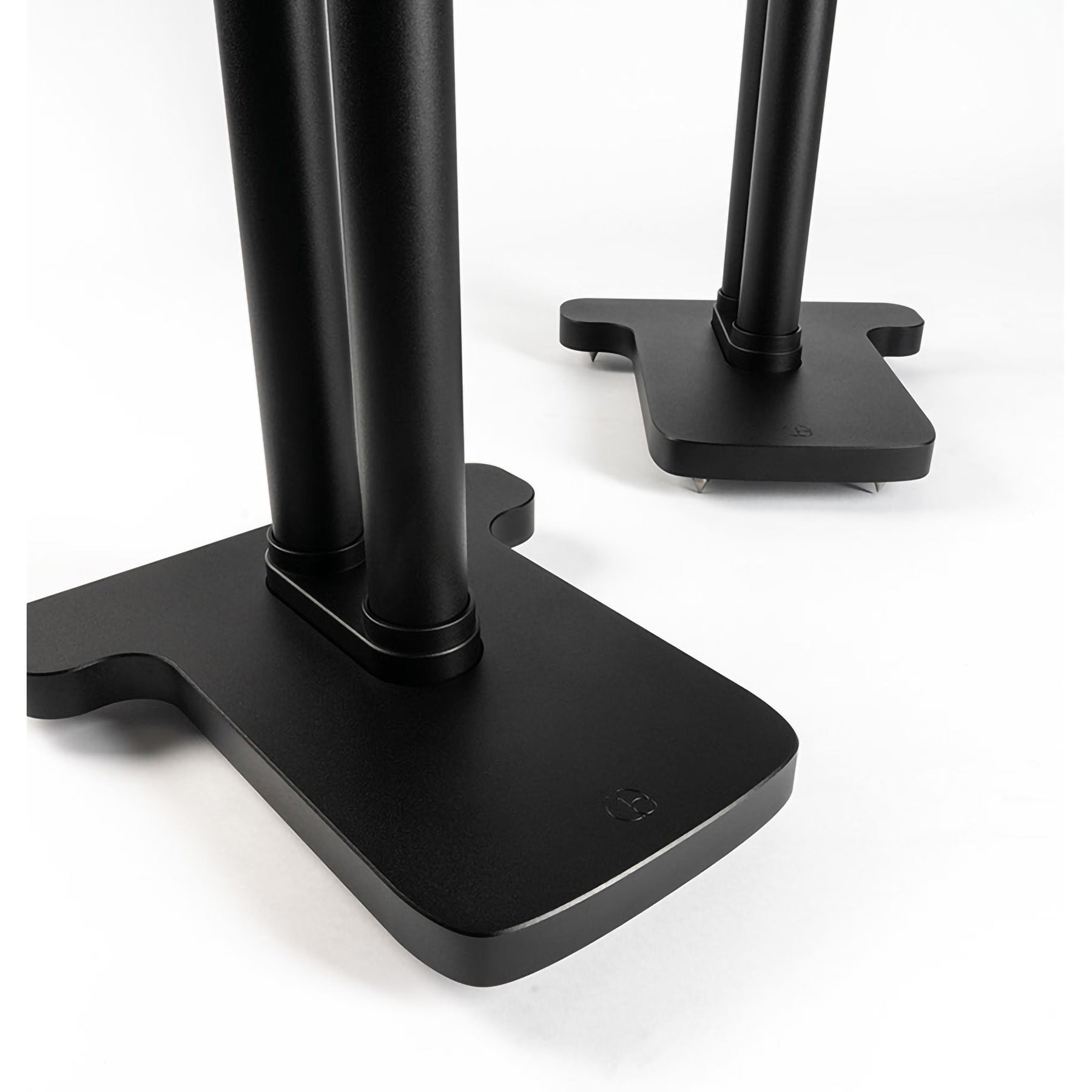
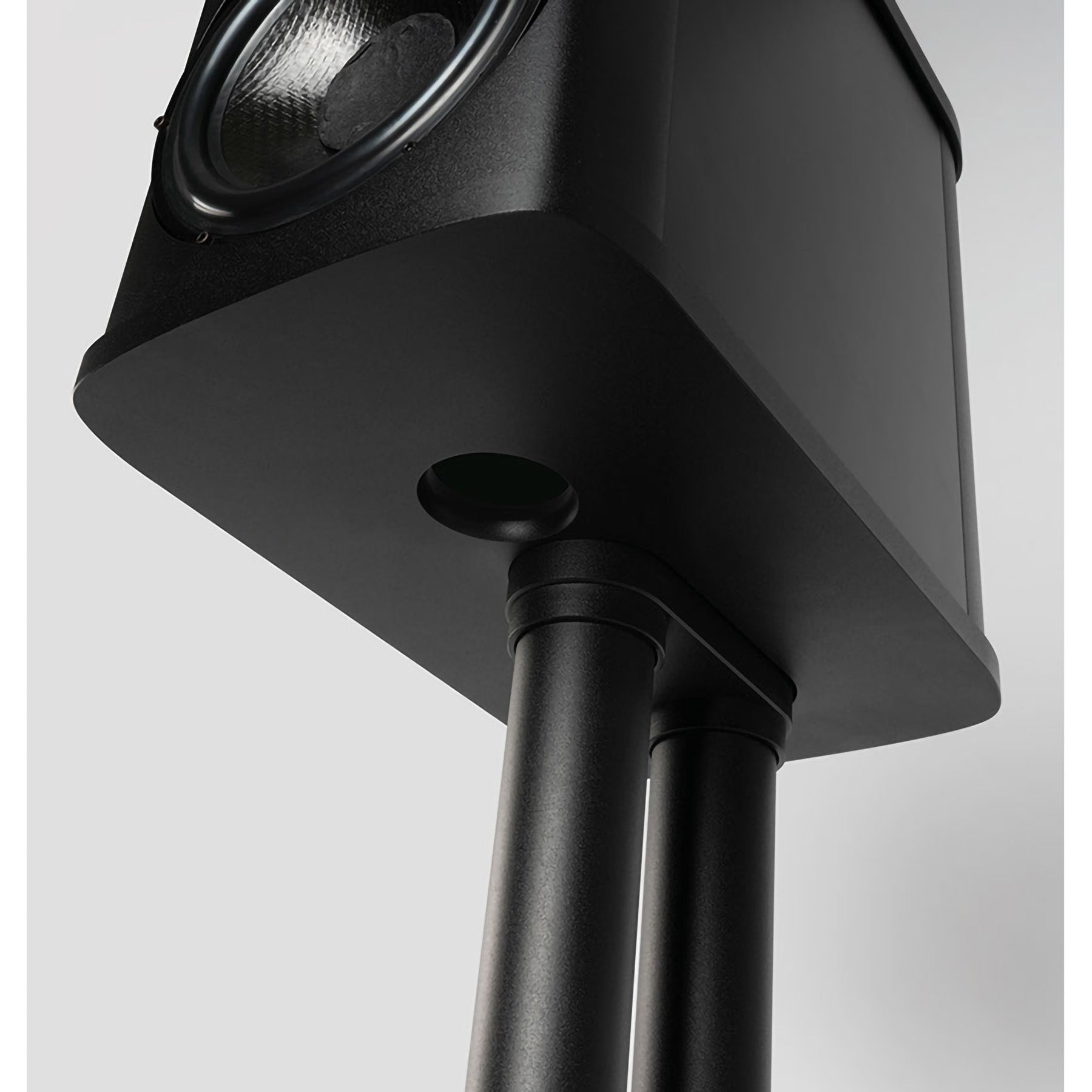
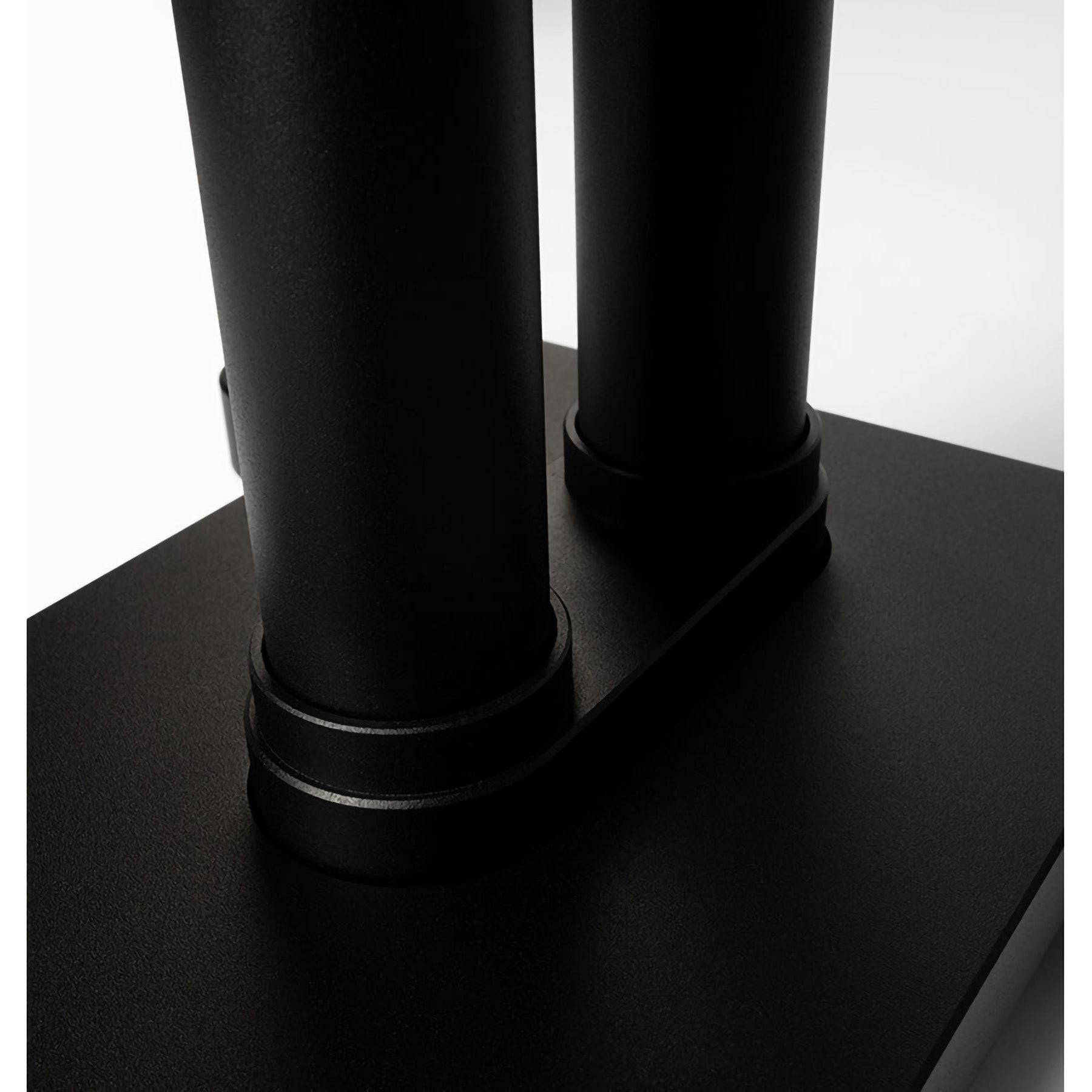
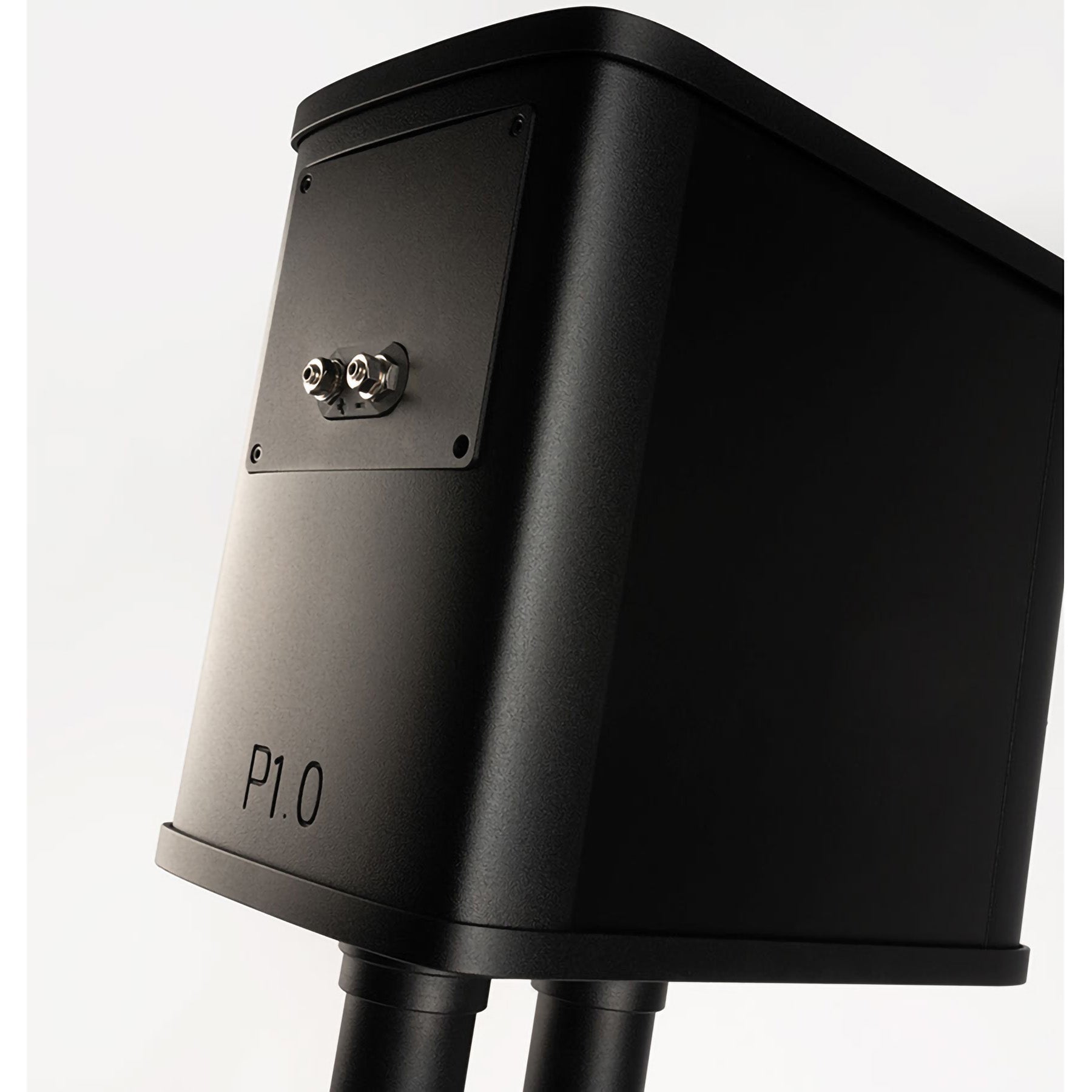
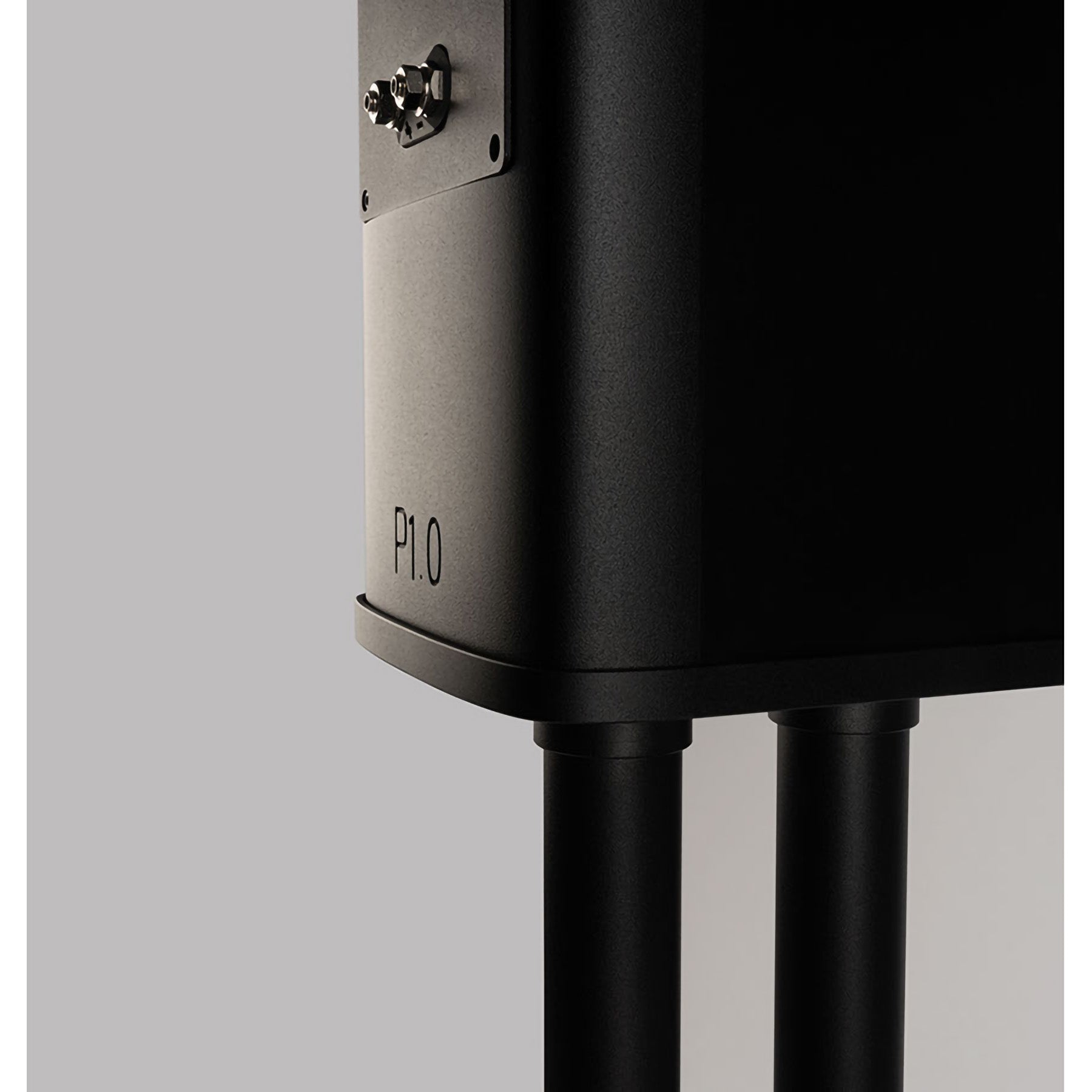
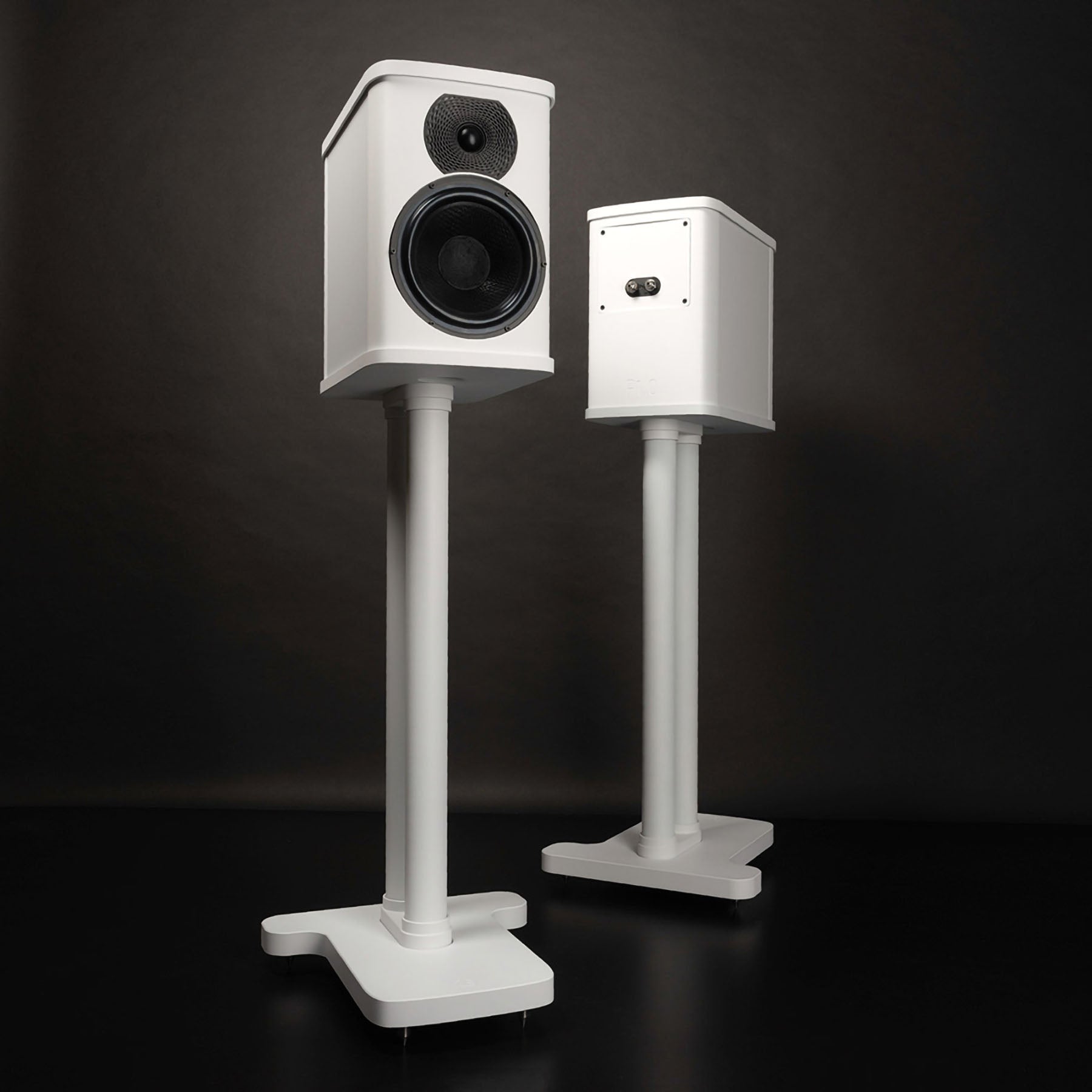
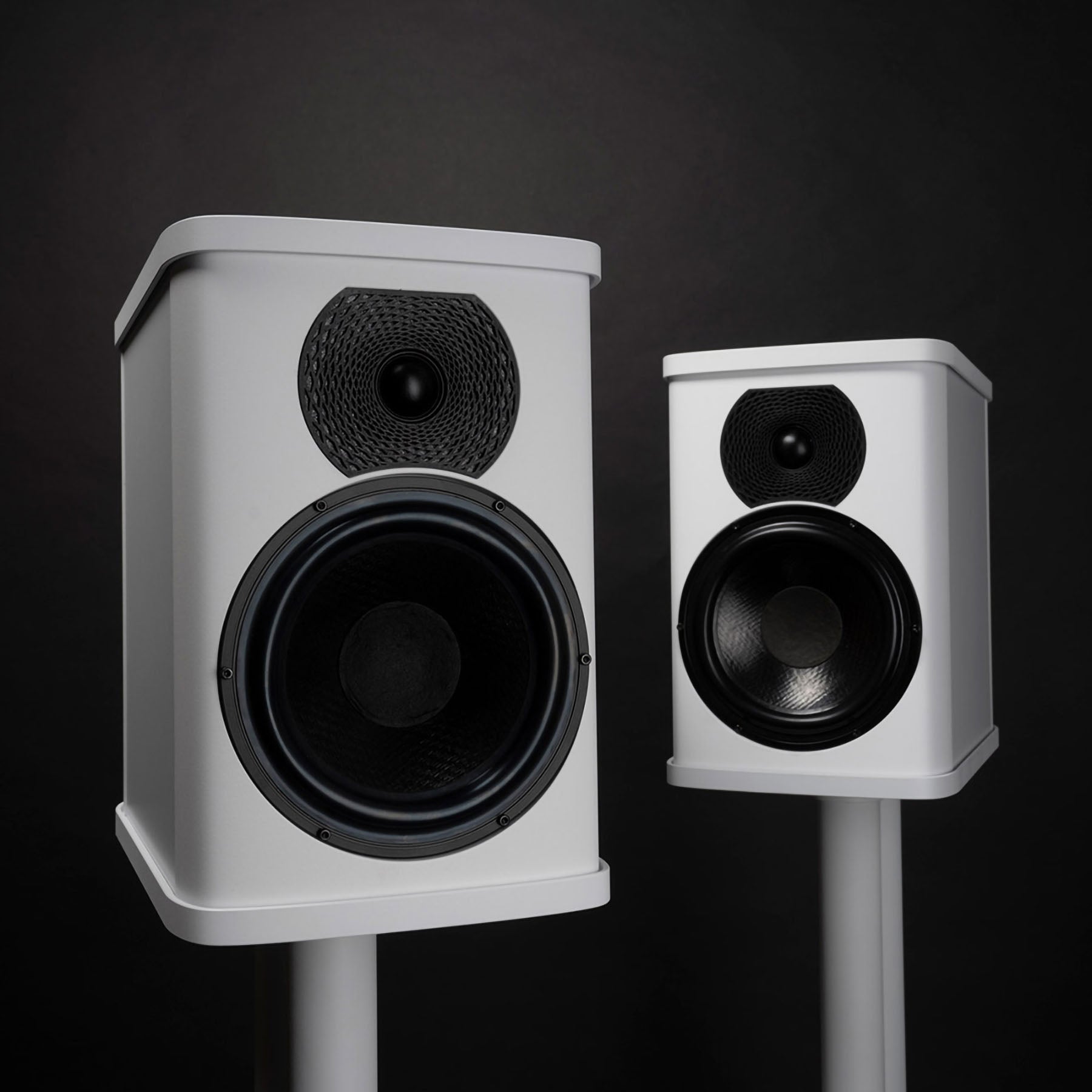
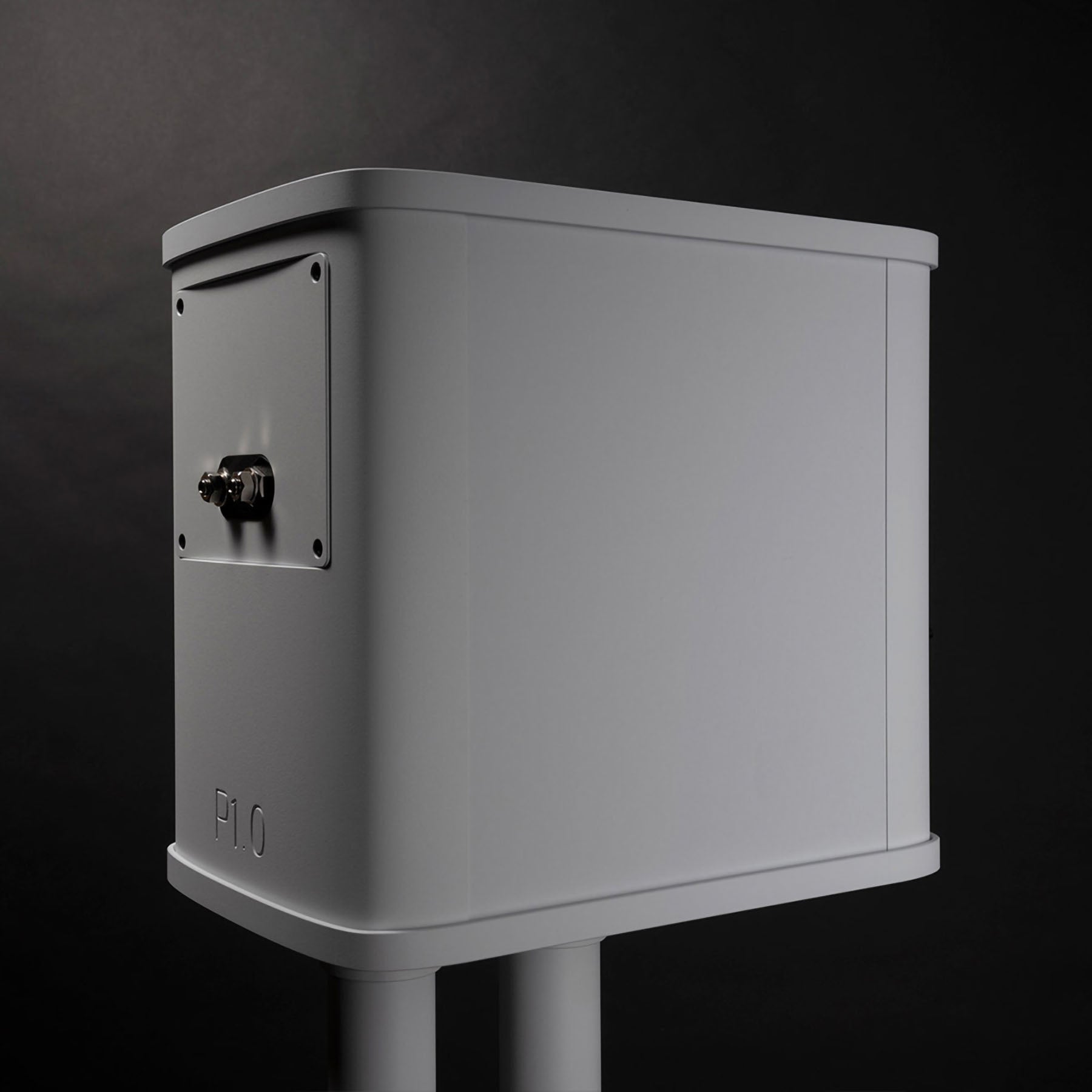
Wilson Benesch Precision Series - P1.0 2-way Standmount Loudspeaker (pair)
Wilson Benesch Precision Series - P1.0 2-way Standmount Loudspeaker (pair)
Black
22 Saint Kilda Road
22 Saint Kilda Road
Suite 2.02
St Kilda VIC 3182
Australia

Wilson Benesch

P1.0 Standmount Loudspeaker
The entry into the new Precision Series.
The P1.0 offers exceptional value and performance.
Expertise in Design & Construction

Three-decades of Research & Development underpin the Wilson Benesch Design Team. The Precision Series distills core Wilson Benesch loudspeaker technologies within its loudspeaker enclosures. With trickle-down technology from the reference line evident throughout its design.
Technology
ALUMINIUM TOP & BOTTOM BRACING
The Precision Series used a multi-material hybridised structure. This design philosophy has been developed by Wilson Benesch over three-decades of loudspeaker enclosure design. By combining multiple-materials in this way the designer is essentially forming a composite structure that allows the unique properties of each material to be used to create a design advantage. This exact same hybridised design ethos is used in the reference line Geometry Series.
The distinct Precision Series top and bottom 'caps', whilst elegant forms, are in fact critical components in the enclosure design. Precision CNC-machined from solid billets of aluminium, the caps lock in position the front and rear aluminum baffles with the wood side panels. The caps are then tied along the vertical axis of the Precision Series enclosure using aluminium alloy bars that brace the enclosure and compress the whole structure to ensure it is as sonically inert and stiff as possible.
This tie and brace design is used across the Geometry Series and also within the Isobars of the R1 HIFI Rack. This construction technology is another example of trickle-down technologies taken directly from our reference line.

LEONARDO TWEETER
The Leonardo Tweeter has been developed directly through an iterative design approach that gave birth to the Fibonnaci and Semisphere Tweeters before it.
Unlike these exotic wide-bandwidth designs, the Leonardo does not employ a hybridised Silk-Carbon dome and thus its frequency response is flat to 24 kHz. However the geometrically optimised and decoupled polymer-carbon fibre faceplate is taken directly from the same shelf as that used in the Eminence loudspeaker. This entirely proprietary component is manufactured in-house using the latest 3D printing technology. The faceplate acts as a waveguide to guarantee optimal dispersion and phase characteristics for the Leonardo Tweeter.
Just like the Semisphere Tweeter, Leonardo features the proprietary Neodymium magnet ring in its rear chamber. This open architecture ensures optimal energy paths for both acoustic and thermal energy; critical design considerations where super low distortion levels are aspired to.

INTERNAL DAMPING
As the leader in loudspeaker enclosure design, Wilson Benesch incorporated into the design of the Precision Series numerous features that allow the enclosure to be stiffened and damped optimally. Another example of this is seen in the tubular structures that populate the internal enclosure to provide both increased stiffness but also damping of the Precision Series enclosure along its horizontal axis.

TACTIC II DRIVE UNIT: Design Philosophy
At the very core of the development of Wilson Benesch drive unit technology was the ethos that transient response time should be reduced as much as possible. That is to say the response of the drive unit to change from equilibrium or steady state. There are no delays in nature and yet when a dynamic drive unit attempts to reproduce a range of frequencies from a recording, the laws of physics dictate that the moving mass of the drive unit will always reproduce sound with some delay. This is an unavoidable design limitation of all dynamic drive unit designs today.
However these physical laws can be observed and used as a guide to optimise the dynamic drive unit design. By introducing light and stiff materials to reduce mass, powerful rare-earth magnets to increase power and control, highly optimised structural design to maximise the unique properties of each material and form within the structure, the Tactic II drive unit is a near optimal dynamic drive unit design.
Wilson Benesch has iteratively developed four drive unit designs. These have been referred to by the independent press as “lightning fast” and "one-third dynamic, two-thirds electrostatic". Testament to the design ethos at the core of these technological developments.

TACTIC II DRIVE UNIT: Isotactic Polypropylene
Arguably the most critical component in any dynamic drive unit design is the choice of material in the cone. Wilson Benesch was the first company in the world to develop a consumer product that used Isotactic Polypropylene. More than a decade on, this remains the material of choice in all our drive unit technologies. It's unique balance of high specific stiffness with exceptional damping provide what we regard as the optimum balance of material properties. Other hard dome technologies, including that using carbon fibre have been extensively tested. Without exception all these technologies result in the need to design complex crossovers to control unwanted resonances within the cone which arise from very high specific stiffness. This complexity within crossover design is regarded as a compromise.

INTERNAL ENCLOSURE TIES & BRACES
The hybridised Precision Series enclosure is further stiffened and damped using threaded steel bars. The bars terminate into threaded pockets on both the aluminium top and bottom caps, plus the front and rear aluminium baffles. The bars are then torqued to create a compressive force across the vertical axis of the Precision Series P1.0 enclosure.
This design feature is used across our reference loudspeaker line and also within the Isobars of the R1 HIFI Rack. This construction technology is another example of trickle-down technologies taken directly from our reference line.
Video
Reviews
What Hi-Fi? 2019, 5-Stars
Things are convincing tonally, with the speakers sounding unusually even across the board. The integration between the drive units is seamless, helping to give the impressive musical cohesion we hear. These speakers don’t shy away from large-scale dynamics either, punching out crescendos with enthusiasm and composure. At the same time, they have the finesse to keep things interesting during the more low-key movements of the piece. Cap it all off with an impressive ability to resolve low-level detail and the ability to organise it in a wholly musical manner, and you have a pair of speakers that set sky-high standards for the price.
Audio Esoterica, Ian Frazer, 2019
Well, from that famous and totally distinctive clarinet glissando intro, I knew straight away that I was in for a good time, and the Wilson Benesch P1.0s didn’t disappoint. The piano sound was insanely good: just listen to the notes ‘hang’ in the air in front of the speakers.
HiFi Advice, Christiaan Punter, 2020
The Wilson Benesch Precision Series captures a large part of the essence of the Wilson Benesch sound at a more accessible price point. Both the P1.0 and P2.0 deliver a sound that is solid, dynamic and powerful as well as vivid, open and communicative. But in the true spirit of Wilson Benesch, they combine their energetic delivery with a pleasant smoothness and a hint of warmth to make for an easy to listen to yet always engaging performance.
| Type | 2-Way Stand Mounted Loudspeaker |
|---|---|
| Drive Technology | 1 x 25mm (1”) WB Leonardo Tweeter 1 x 170mm (7”) WB Tactic II Mid/Bass Drive Unit |
| Crossover Technology | Tweeter 2nd Order Crossover Mid-Bass Directly Amplifier Coupled |
| Enclosure Technology | Hybrid Composite Construction U-Section High Torsion Aluminium Alloy Damping Rods in the Horizontal Axis Tubular Cross Bracing Port Tuning Alloy Baffle, Top, Foot with Machined Logos Front & Rear |
| Measurements | Impedance: 6Ω nominal / 4Ω minimal Sensitivity: 89dB at 1 metre on-axis, 2.83V input Frequency response: 38Hz – 24kHz +/- 2dB on-axis |
| Dimensions | Height: 1025mm (40.4″) including stand Height of Cabinet: 322mm (12.6“) Width: 348mm (13.7”) Depth: 368mm (14.48”) |
| Weight | 30kg (66 lbs) per speaker (channel) including integrated stand |



